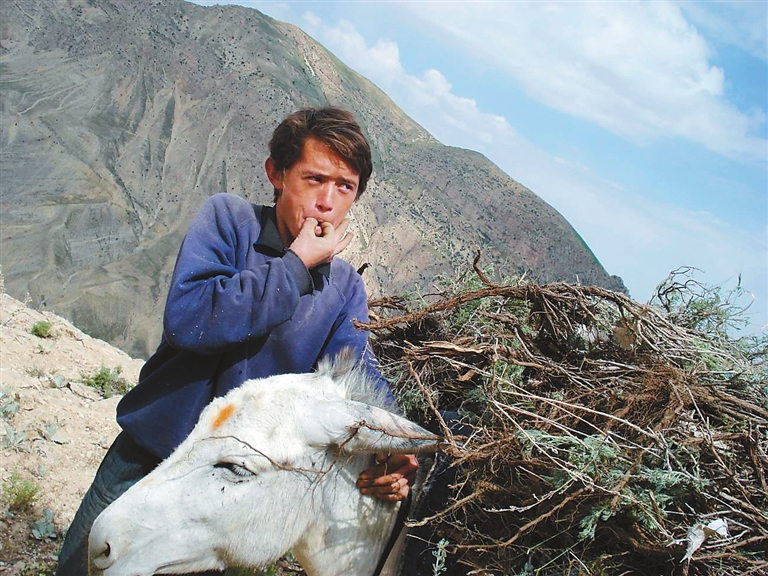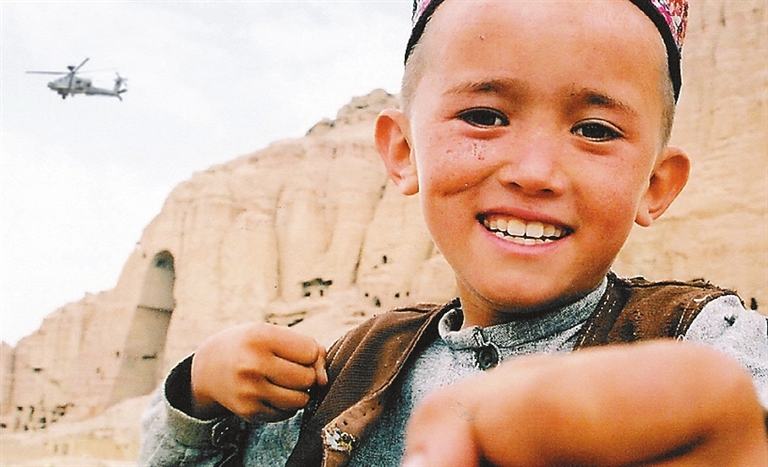

This new documentary, co-directed by Phil Grabsky and Shoaib Sharifi and filmed over a period of 20 years, chronicles an Afghan youth, Mir Hussein, from his childhood to his life in present-day Kabul. Grabsky first shot a film about Hussein as a playful 8-year-old living with his family in a cave in 2004’s “The Boy Who Plays on the Buddhas of Bamiyan.” He continued to track Hussein’s life over several years in 2011’s “The Boy Mir.” This new effort catches up with Hussein as a married father of three, working as a cameraman on the streets of Kabul. The once cheerful Hussein doesn’t look so happy anymore. He still smiles a lot, but usually with a weary, pained expression. He says that he didn’t want to get married and have children so young, but did so at his father’s insistence. His wife acknowledges that her knowledge of birth control came too late. This new film records Hussein’s life over the past two decades, never mentioning the previous documentaries. Narrating the film, Hussein describes his happy childhood living with his parents, sister and brother-in-law in a cave near the legendary Buddha statues that were tragically destroyed by the Taliban. He and his family were optimistic after the American invasion; at one point he’s shown pointing at a fighter jet passing overhead, exclaiming, “I like Americans.” Still, living in a cave has its drawbacks, even for an energetic youth. “There was a lot of tension in that small space,” Hussein says. A few years later the family was able to return to their home village, with Hussein happily going back to school with the intention of becoming either “a headmaster or president.” But he soon had to take time off to do manual labor to help support his family, finally doing the dangerous work of digging coal. Meanwhile, there was increasing conflict between the Taliban and NATO forces. Hussein says he was excited and frightened to see foreign soldiers in his village for the first time, noticing that the young men seemed scared as well. After getting married, Hussein moved his wife and growing family to the city of Mazar-e-Sharif, where they struggled financially because Hussein was unable to find good-paying work. It was the filmmakers who helped him achieve his dream of working as a cameraman; upon moving to Kabul, he spent much of his professional time filming the killings that resulted from suicide bombings. He nearly got killed himself when a bomber mingled with a group of journalists and blew himself up. Hussein rushed toward the scene, and it was only because he stopped to make a phone call that he avoided becoming the victim of a second bomber at the same location. The intimate profile is frequently interrupted by archival news footage which now has a deeply ironic tone. We listen as a series of U.S. presidents, from Bush to Obama to Trump, declare victory over the Taliban, and see a beaming Condoleezza Rice and Dick Cheney watch the inauguration of Hamid Karzai as Afghanistan’s president. But as recent events have proven, while things improved in Afghanistan over the past 20 years, its problems are far from resolved. “I have never experienced a happy life,” says Hussein at the film’s conclusion. He nonetheless feels optimism, declaring that he’s “hopeful for a better future for Afghanistan.”(SD-Agencies) | 
